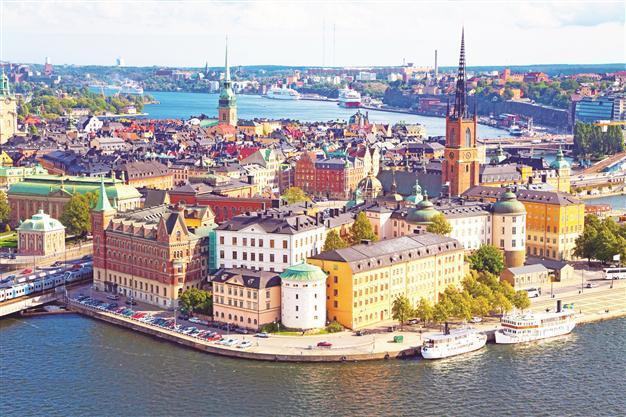Nordic banks seen as reliable haven
STOCKHOLM - Agence France—Presse

Swedish and Norwegian banks have been seeing an influx of foreign investors looking for a safe haven from the turmoil of the troubled eurozone. Hürriyet photo
Swedish and Norwegian banks say they have seen an influx of foreign investors looking for a safe haven from the turmoil of the troubled eurozone.
But while financial institutions in the Scandinavian countries may be as safe as houses, frothy real estate markets have pushed consumer debt to record levels. In Stockholm’s trendy Vasastan district, a 10 square meter (108 square feet) home once used to house the building’s caretaker last month sold for 1.35 million kronor (159,000 euros or $204,000).
Currencies less riskyFor investors, the case for placing money in Sweden and Norway is largely based on the fact that their currencies are seen as less risky than the beleaguered euro. Neither country is a member of the eurozone, and Norway is not even a member of the EU. Moreover, their export-driven economies have been doing well, their financial systems have been largely unscathed by the international crisis, and Norway’s oil industry has been cheered by rising prices and a string of oil and gas finds over the past year.
At Norway’s largest bank DNB, a special unit has been set up to deal with the growing number of inquiries from overseas. “Over the past year we’ve seen growing interest from foreign clients not just in private banking but also from regular retail and corporate banking customers,” said Ingrid Tjoenneland, DNB’s head of private banking, which targets high net worth individuals.
The trend began two years ago with a growing number of German investors depositing money in Norwegian banks, but has spread to investors from all over the eurozone, she added.
A spokesman for Scandinavia’s largest bank Nordea said that although the phenomenon is more pronounced in Norway, some central banks have raised their Swedish krona-denominated holdings in the wake of the euro crisis.
“We’re seeing large inflows into (Norwegian and Swedish) fixed income funds,” said Claes Maahlen, head of trading strategy at investment bank Handelsbanken Capital Markets.
